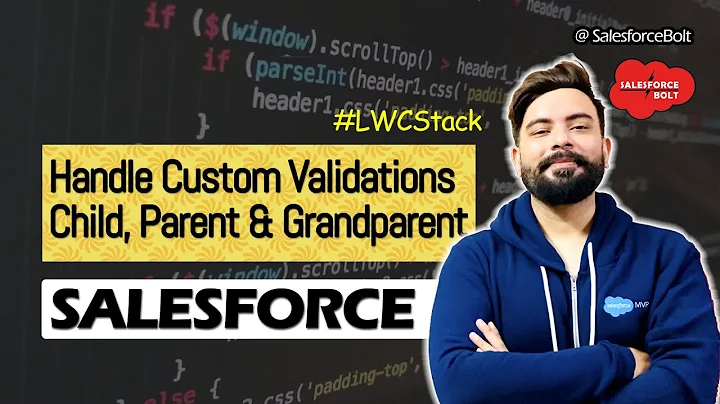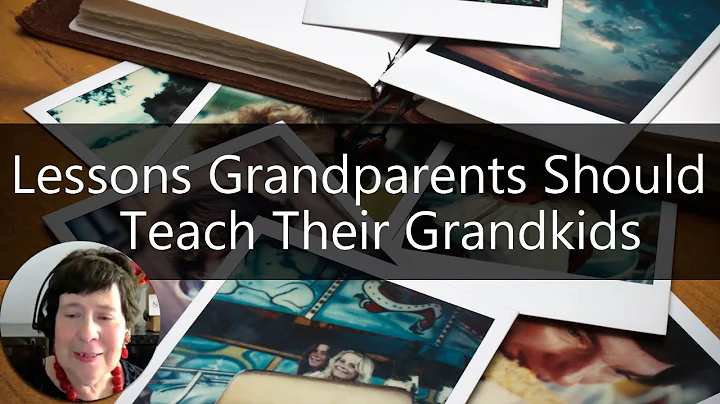How to emit an event from grandchildren to grandparent in modern angular?
Solution 1
There could be 2 ways:
- Using
@output:
Grandparent
<parent (notifyGrandParent)="grandmaHandleClick($event)">
<parent>
...
grandmaHandleClick(event) {
console.log('grandma knows you clicked')
}
Parent:
<child (handleClick)="childEvent($event)">
</child>
@Output() notifyGrandParent= new EventEmitter();
childEvent(event) {
this.notifyGrandParent.emit('event')
}
Child is implemented properly in the code so it is good to go.
- Using
BehaviorSubjectviaService: With this much level of nesting, you can actually create some service likeEventService, and then createBehaviorSubjectwhich can directly be subscribed by the GrandParent. Also, to make thisservicemore component specific, you can keep this service in amodulewhich will have other 3 components (GrandParent, Parent and Child)
export class EventService{
private childClickedEvent = new BehaviorSubject<string>('');
emitChildEvent(msg: string){
this.childClickedEvent.next(msg)
}
childEventListner(){
return this.childClickedEvent.asObservable();
}
}
and then in components:
ChildComponent
export class ChildComponent{
constructor(private evtSvc: EventService){}
onClick(){
this.evtSvc.emitChildEvent('clicked a button')
}
}
GrandParent
export class GrandComponent{
constructor(private evtSvc: EventService){}
ngOnInit(){
this.evtSvc.childEventListner().subscribe(info =>{
console.log(info); // here you get the message from Child component
})
}
}
Please note that, with @output event, you create a tight coupling of components and so a strong dependency (parent-child-grandchild) is created. If the component is not reusable and is only created to serve this purpose, then @output will also make sense because it'll convey the message to any new developer that they have parent-child relationship.
Creating a service to pass data also exposes the data to other components which can inject service in constructor.
So, the decision should be taken accordingly.
Solution 2
Use rxjs/subject, it can be observer and observable in the same time.
Usage:
- Create Subject property in service:
import { Subject } from 'rxjs';
export class AuthService {
loginAccures: Subject<boolean> = new Subject<boolean>();
}
- When event happens in child page/component use:
logout() {
this.authService.loginAccures.next(false);
}
- And subscribe to subject in parent page/component:
constructor(private authService: AuthService) {
this.authService.loginAccures.subscribe((isLoggedIn: boolean) => {
this.isLoggedIn = isLoggedIn;
})
}
Related videos on Youtube
user2167582
Updated on October 03, 2022Comments
-
user2167582 over 1 year
If I have multiple levels of angular components, how can I use
@Outputto emit an event from child to the grand parent?Grandparent:
<parent (handleClick)="grandmaHandleClick($event)"> <parent> ... grandmaHandleClick(event) { console.log('grandma knows you clicked') }Parent:
<child (handleClick)="handleClick($event)"> </child>Child:
<div (click)="onClick()">Click button </div> ... @Output() handleClick = new EventEmitter onClick() { this.handleClick.emit('clicked a button') }I am trying to have it so that @Output can prop drill a few components deep, whats the best way to accomplish this, and can you provide example?
-
user2167582 almost 5 yearsIn the first approach, wouldn' @output be on the child component?
-
 Shashank Vivek almost 5 years@user2167582: It has already been handled by you properly using
Shashank Vivek almost 5 years@user2167582: It has already been handled by you properly using@Output() handleClickinchild componentthat is why I didnt mention it. Let me add that as well -
user2167582 almost 5 yearsThank you, I did and it works. upon asking this I was also curious if there's a way to pass (boundedEvent) down components without necessarily having to add handler methods to emit back up the hierarchy, seems like it is needed.
-
 Shashank Vivek almost 5 years@user2167582: If its just one level of
Shashank Vivek almost 5 years@user2167582: If its just one level ofparentchildcomponents, you can use@Inputand usengOnChangein child to monitor the change in value which is passed tochild component. Else, if its is multi level component structure, you can again useBehaviorSubject -
David Silva over 3 yearsThis was so helpful to me. Just a tiny detail.... In the original post there's the line...
<div (click)="onClick">Click button</div>. TheonClickshould beonClick(). The answer says, "Child is implemented properly in the code so it is good to go" -- so someone might end up confused. -
 Shashank Vivek over 3 years@DavidSilva: You are correct, my friend! I'll correct that in the question. Many Thanks ! :)
Shashank Vivek over 3 years@DavidSilva: You are correct, my friend! I'll correct that in the question. Many Thanks ! :)










